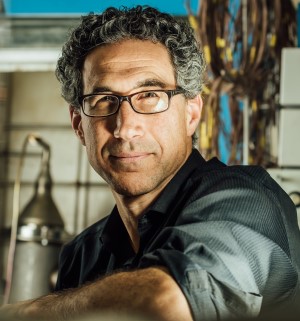Dr. Jason I. Gerhard

Jason I. Gerhard (1969 -2022)
Jason Gerhard came to Western University in 2007 as a Canada Research Chair in geoenvironmental restoration engineering. He received his PhD in civil engineering from Queen’s University in 2002 and worked at the University of Edinburgh from 2002 to 2007.
Jason was a professor of civil and environmental engineering at Western and a leading international expert in groundwater contamination and environmental remediation technologies including “environmental beneficial smouldering”. He was also a GRC Research Director.
At Western, Gerhard taught undergraduate environmental engineering courses and supervised over 75 graduate students. He also served as the civil and environmental engineering department’s graduate chair for several years.
Gerhard co-founded Western’s Research for Subsurface Transport and Remediation Group, which he co-led with fellow engineering professors Clare Robinson and Christopher Power.
As part of RESTORE, Gerhard worked to develop technologies used in waste management and co-invented new forms of thermal remediation technology. He was awarded millions of dollars in research funding, including a grant from the Bill and Melinda Gates Foundation to “reinvent the toilet.”
Outside of his academic work, Gerhard was an engaged Western community member and advocate for environmental sustainability. A year-round cyclist, he was a member of the Western Active Transportation Society.
Gerhard was diagnosed with brain cancer in December 2020 and passed away 25 months later. Even as his cancer progressed, his students and colleagues remembered his continued positivity and kindness.
Jason I. Gerhard Graduate Leadership Award in Environmental Engineering
The Jason I. Gerhard Graduate Leadership Award in Environmental Engineering is awarded to a full-time female graduate student enrolled in a Doctoral (PhD) or Masters’ Program (MESc) within the Department of Civil and Environmental Engineering.
The student’s research is within the field of environmental engineering. Preference will be given to a student who demonstrates an affinity for leadership in the student body and/or professional and/or local communities, sharing her passion for working together to solve environmental challenges.

